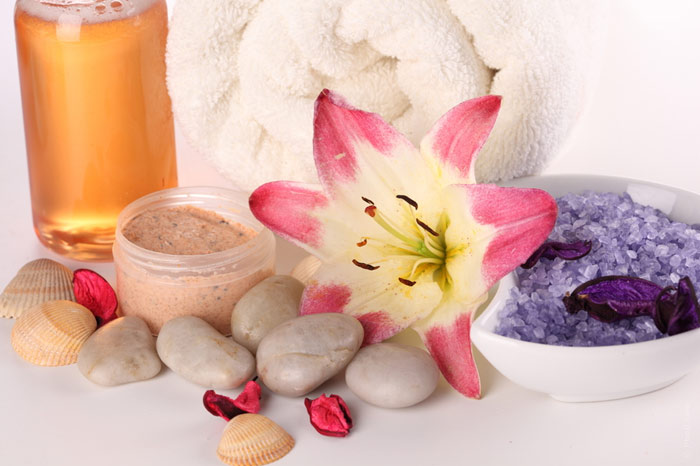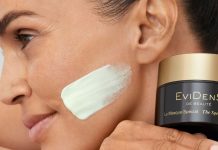Among the vast range of cosmetic products, displayed in the shop windows, we have found a lot of products, where glycerol is one of the main components. It is believed that this substance copes with the problem of moisture, nourishes the skin and makes it smooth and velvety. Glycerol is often a part of home masks, creams for hands and feet. Some women reject this component altogether and consider it to be dangerous and harmful to the skin. Is it really so?! Does glycerol have negative impact on the human body?! Let’s analyze!

What Is Glycerol?
Glycerol is trihydric alcohol which resembles a transparent viscous liquid in consistency and performs the function of solvent. It is thanks to glycerol that the ingredients of creams and other cosmetic products quickly come together and form a homogeneous mass. Glycerol is extracted from vegetable fats as well as by synthesizing the toxic substance called epichlorohydrin.
As a rule, manufacturers do not indicate on the package the type of glycerol used in the production process – natural or artificial. They may lie uncontrollably, using the word ‘natural’ with glycerol despite its being artificial. According to all the varieties, glycerol may be raw (44-90%), technical (98%) and pharmaceutical (99-99.7%).
Despite the fact that new and absolutely harmless substances have been introduced instead of glycerol and that they cope very well with the same task, this substance is still used in the cosmetic industry. This is not only due to the cheapness of the product, but also because its molecular fragments are part of biological compounds produced by the human body, which means it cannot cause allergic reactions. This aspect is important for many of today’s manufacturers.
However, some of them remove glycerol from their cosmetic products, believing that it deprives the skin of natural moisture and dries it instead of moisturizing. Should we believe such statements? It is difficult to answer this question; the issue still requires further research and there is still much controversy about glycerol. After all, it is you who will decide whether to use the cosmetics based on glycerol!
The benefits and harms of glycerol
As mentioned above, glycerol is the trihydric alcohol, and its main feature is hygroscopicity. After contacting the skin (not in its pure form, of course), it covers the skin with a protective film and at the same time begins to absorb the life-giving water from its deeper layers, thus contributing to skin drying. It is for this reason that many women claim glycerol brings more harm than benefit.
But on the other hand, glycerol is capable of absorbing moisture from the environment, which is also useful for the skin. Which conclusion does this fact lead to? As you may have understood, the effect of glycerol depends on the humidity of the atmosphere. For example, if the indoor air is very dry (due to heating, etc.), glycerol contained in a cream or any other product, will begin to absorb the life-giving water from the inside. As a result, the skin becomes dry and unappealing.
In the room with high humidity, cosmetic products based on glycerol will not cause harm to the skin.
The influence of any product on the skin depends not only on the environment, but also on the proportion of glycerol, included in its composition. The amount of this substance should not exceed 7% of the total weight. The application of undiluted glycerol is strictly prohibited. If the label of cosmetic products indicates glycerol in the first place, it exceeds the acceptable amount. In this case, the effect of skin drying is provided. Glycerol may lead to positive results if it is natural. Its correct proportions in creams and gels not only lead to moisturizing the skin, but also have a rejuvenating effect. Though some women claim that the products with glycerol do not produce such an effect.
The benefits of the cosmetic products with glycerol include the ability to accelerate metabolism in the upper layers of skin, remove fat, dirt and toxins from the pores, as well as eliminate cracks on hands, knees, elbows and heels (but only if humidity in the room is higher than 55%). Glycerol often acts as a stabilizer of homemade cosmetics. In the industry, glycerol is used to obtain various cleaning soap that may wash melanin out the skin making it a few shades lighter. This should be considered by those who are not willing to part with the existing skin tone.










